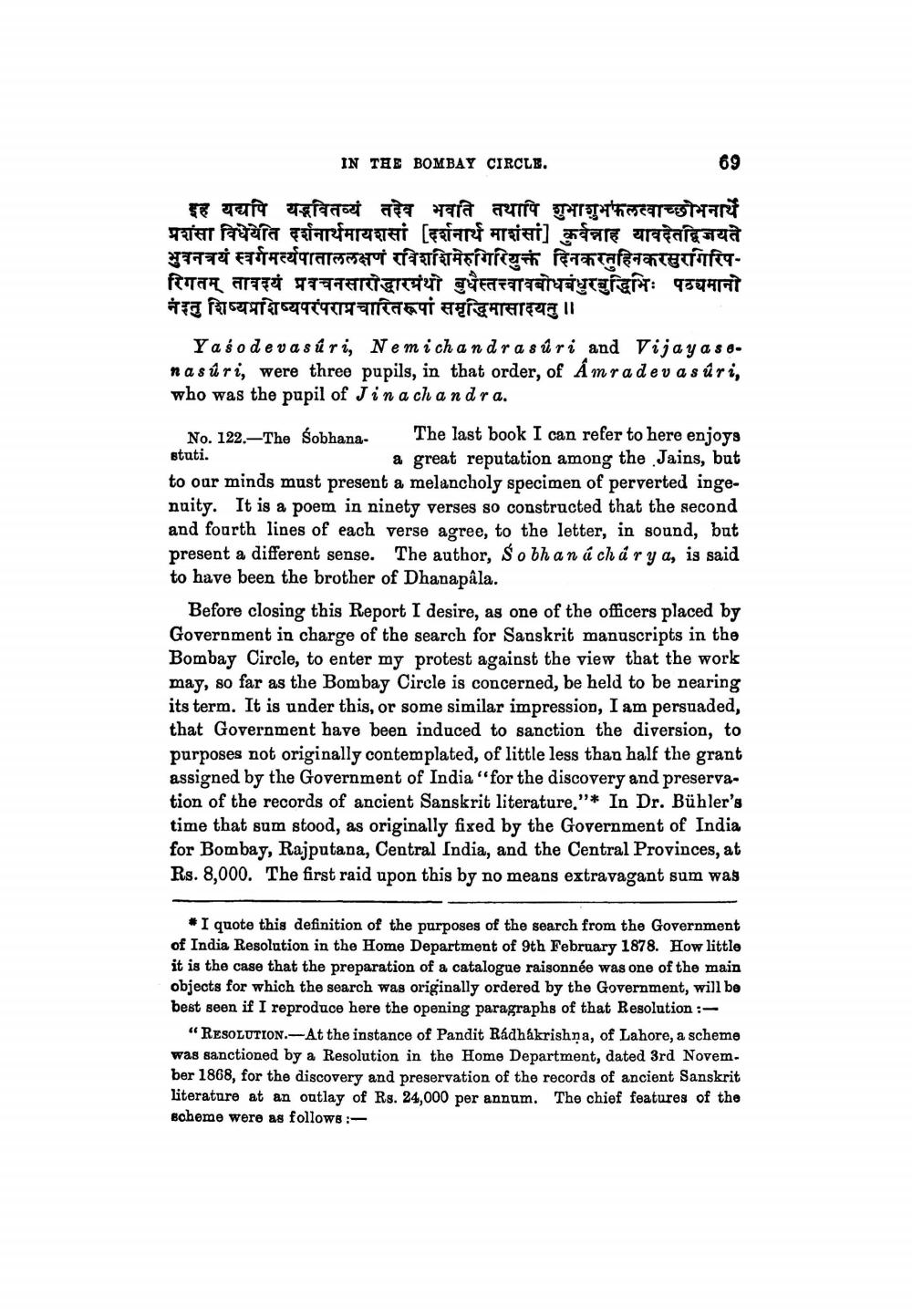________________
IN THE BOMBAY CIRCLE.
69
इह यद्यपि यद्भवितव्यं तदेव भवति तथापि शुभाशुभफलत्वाच्छोभनायें प्रशंसा विधेयेति दर्शनार्थमायशसा [दर्शनार्थ माशंसां कुर्वन्नाह यावदेतद्विजयते भुवनत्रयं स्वर्गमर्त्यपाताललक्षणं रविशशिमेरुगिरियुक्तं दिनकरतुहिनकरसुरगिरिपरिगतम् तावदयं प्रवचनसारोद्धारग्रंथो बुधैस्तत्त्वावबोधबंधुरबुद्धिभिः पठयमानो नंइतु शिष्यप्रशिष्यपरंपराप्रचारितरूपां समृद्धिमासादयतु ।।
Yaś odeva s úri, Nem ich andra sûri and Vijay as a. na súri, were three pupils, in that order, of Amradev a sûri, who was the pupil of Jinach andra.
No. 122.-The Sobhana. The last book I can refer to here enjoys stuti.
a great reputation among the Jains, but to our minds must present a melancholy specimen of perverted ingenuity. It is a poem in ninety verses so constructed that the second and fourth lines of each verse agree, to the letter, in sound, but present a different sense. The author, so bh an á chá rya, is said to have been the brother of Dhanapâla.
Before closing this Report I desire, as one of the officers placed by Government in charge of the search for Sanskrit manuscripts in the Bombay Circle, to enter my protest against the view that the work may, so far as the Bombay Circle is concerned, be held to be nearing its term. It is under this, or some similar impression, I am persuaded, that Government have been induced to sanction the diversion, to purposes not originally contemplated, of little less than half the grant assigned by the Government of India "for the discovery and preservation of the records of ancient Sanskrit literature."* In Dr. Bühler's time that sum stood, as originally fixed by the Government of India for Bombay, Rajputana, Central India, and the Central Provinces, at Rs. 8,000. The first raid upon this by no means extravagant sum was
* I quote this definition of the purposes of the search from the Government of India Resolution in the Home Department of 9th February 1878. How little it is the case that the preparation of a catalogue raisonnée was one of the main objects for which the search was originally ordered by the Government, will be best seen if I reproduce here the opening paragraphs of that Resolution :
"RESOLUTION.- At the instance of Pandit Rádhákrishna, of Lahore, a scheme was sanctioned by a Resolution in the Home Department, dated 3rd Novem. ber 1868, for the discovery and preservation of the records of ancient Sanskrit literature at an outlay of Rs. 24,000 per annum. The chief features of the Boheme were as follows:




